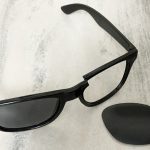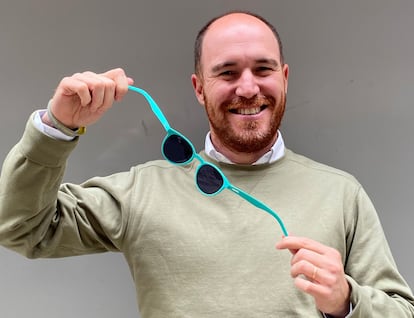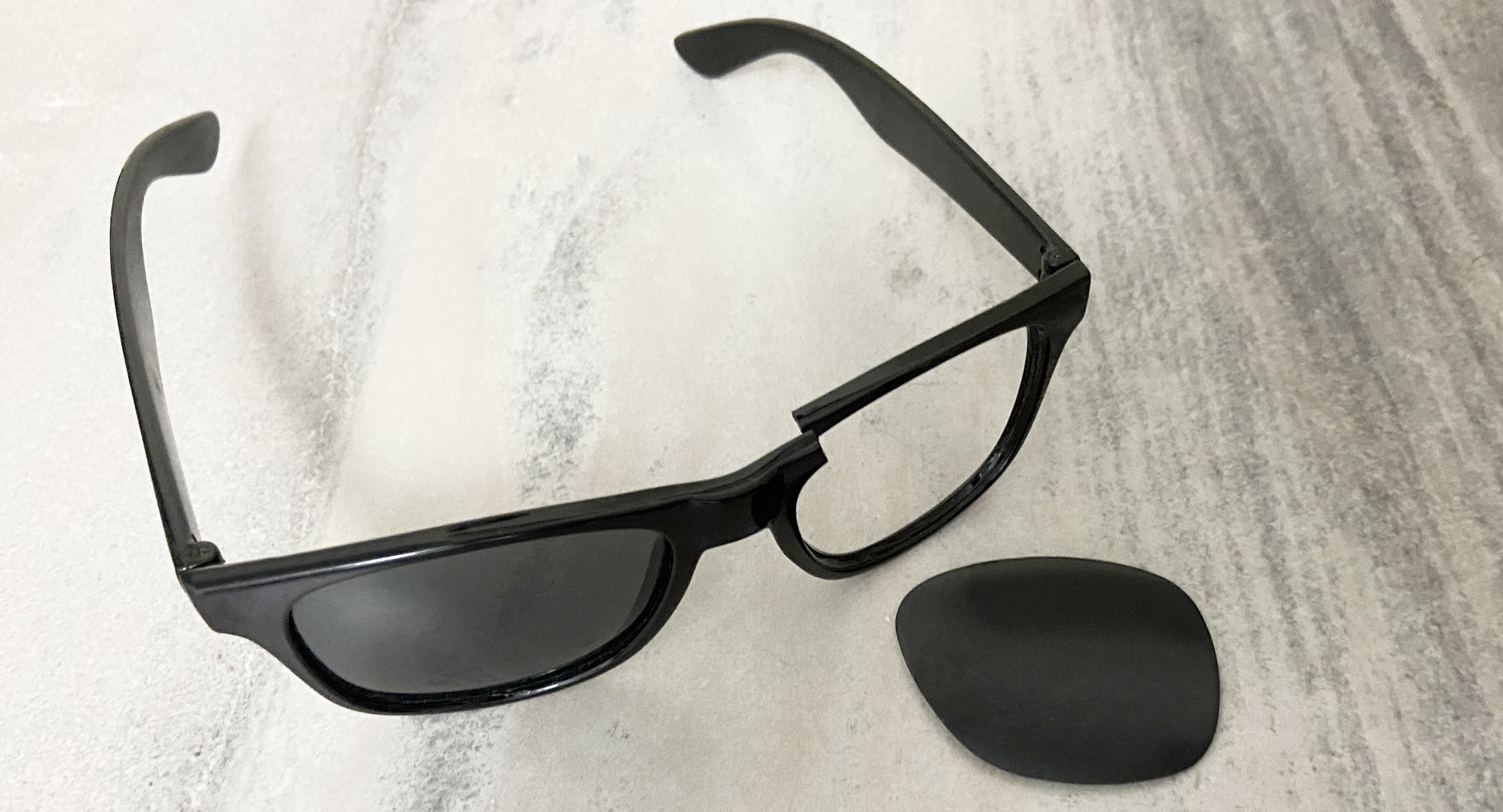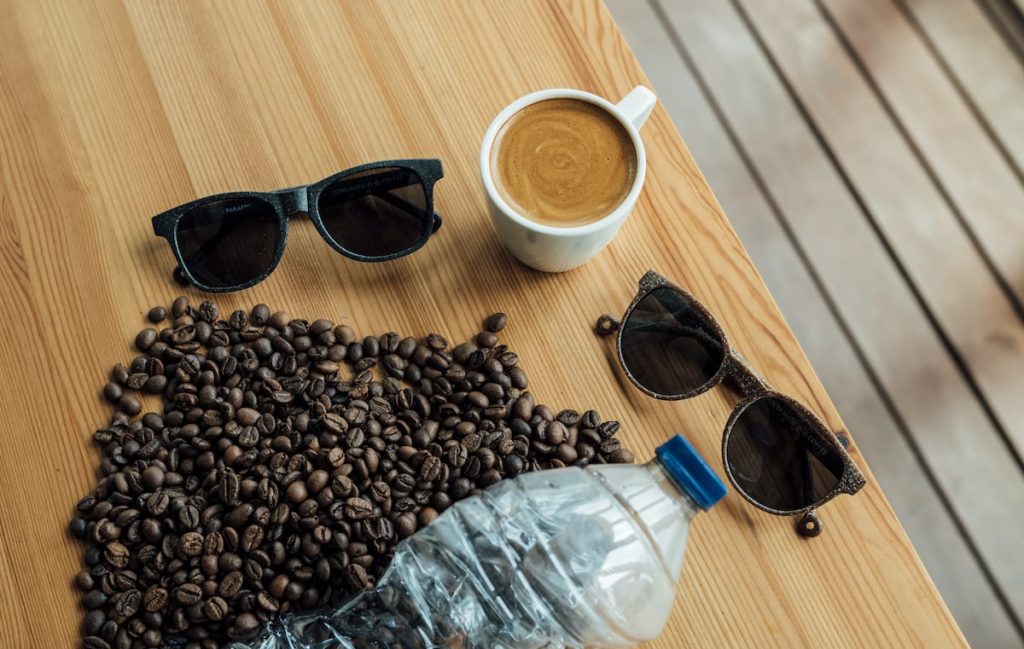


Samuel Soria, a 40-year-old from Madrid, remembers that when he started selling modern, functional glasses made almost entirely from recycled plastic, customers, curious but distrustful, questioned the characteristics of the material beforehand. “It breaks more easily, doesn’t it?” they asked. Or even, “It’s going to smell bad, right?” The businessman encountered these prejudices eight years ago. It was not unusual, he says, since at that time there were noticeable differences in the finish between a recycled item and a non-recycled one. “Today it has been greatly reduced,” he says, as a result of an advance in technological processes and the growing acceptance among consumers towards this type of product. Thanks to this, he has been incorporating into the catalogue of Parafina, his brand, models made from other recycled materials, such as aluminium from cans or rubber from tyres, some of the most abundant waste on the planet, along with plastic. And he continues to experiment. In 2023 he will launch his first line of glasses made from ground coffee remains.
The use of recycled materials in the optics sector is still a minority. According to the Spanish Association for the Manufacturing, Marketing and General Importation of Optics and Ophthalmology (AEO), which represents 85% of the volume of glasses manufacturing in Spain, only 10% of its members sell models made from these materials, and they do not account for more than 5% of sales. Pedro Rubio, its president, says that this is because the average age of the consumer is higher than in the world of fashion, being over 40 years old, and environmental awareness is lower. As the new generations get older, Rubio believes that the demand for more sustainable products will grow. However, the number of companies that use recycled materials may be greater today since there are manufacturers, such as Parafina, that are not part of the association.
For safety reasons, the use of these recycled materials is limited to frames, since lenses cannot be made from recycled materials. “In the material recovery process, particles from other waste can be mixed in, which can interfere with the quality of the lens,” explains Soria. According to Rubio, the most widely used products for manufacturing both prescription and sunglasses are glass and polycarbonate (a type of plastic), which are not recycled.
From bamboo to coffee
At the AEO, there is a growing interest among consumers in the use of these recycled materials, which allow for a range of design possibilities similar to that of conventional glasses, made mainly from plastics and acetate (a product derived from cotton and acetone).
Bamboo was the first material that Soria used for her products in 2015. “It is one of the most sustainable woods because it grows quickly.” In search of more alternatives that would have a positive impact on the environment, she also turned to PET plastic, the same one used for water bottles (and which in Spain we deposit in the yellow containers).

Samuel Soria
Owner of Paraffin
“We were thinking long term [él junto con los dos socios con los que inició el proyecto, aunque desde 2020 está solo él al frente de la empresa]We are committed to a business model based on the circular economy, because there will come a day when manufacturing with recycled materials will be the norm. And we want to be ahead of the game,” argues the company manager.
PET is the most recycled plastic in the world and its properties provide flexibility and lightness to glasses. “This makes them very comfortable,” he points out. After the success of rPET, Soria experimented with natural rubber from tires. “We spent three years testing with various manufacturers to achieve the flexibility and softness we were looking for,” he adds. High-density polyethylene (HDPE), used in cleaning containers, was their next objective. With it they make wider frames, similar to conventional glasses.
Later, it introduced aluminium from soft drink cans. “The technology used to recycle it is well established. More than 80% of beverage cans come from other sources and it allows for the manufacture of a strong and durable frame,” explains Soria. The proportion of recycled material exceeds 80% of the frame in all its products. In some, such as rubber glasses, it reaches almost 100%.
In other newer ones, the proportion is lower. As in glasses made from coffee grounds. Around six million tons of ground coffee are generated each year, according to a study by the University of Minho in Portugal. This waste ends up in landfills, where it runs the risk of emitting methane, one of the main greenhouse gases, when it decomposes.
Scientists are investigating methods to give coffee waste a new life, such as developing biofuels and fertilizers, or creating pastes to make objects such as frames. Next year, Parafina will launch its first collection made from this organic waste mixed with PET plastic in a proportion of 45%-55%.
After years of working to ensure that her products do not look recycled, Soria believes that the time has come to reclaim that origin, which is why she wants it to be perceived through their appearance and fibrous feel.
A conventional-looking, but sustainable product
Parafina’s main objective is to reach all types of buyers, not just those who are conscious of caring for the planet. It sells its polarized sunglasses, reading glasses with various prescriptions for presbyopia and blue filter glasses (for those who spend many hours in front of a screen) for a price of between 30 and 75 euros. “We want to show that it is possible to make a frame with a beautiful design that has a positive impact on the planet. And, in addition, at a reasonable price.” And the formula is working. Between 2021 and 2022 they have doubled the volume of units sold after entering pharmacies with Ciclo, a brand exclusive to this channel.
The three partners came from the world of finance and joined forces to look for business opportunities that went beyond mere financial profit. That’s how they found Parafina, a small company from Granada that sold eco-friendly products related to surfing (hence the name of the brand, a reference to the mineral oil used to varnish the board). And they decided to buy it. Of all the items in their original catalogue, the one that worked best was the bamboo sunglasses, so they decided to take that route.

Ensuring environmentally friendly origin
Paraffin production is concentrated in China, where waste is collected and transformed. “Asia is currently the continent that generates the most waste on the planet. Concentrating production close to where the waste is collected helps to optimize the process,” explains Soria.
All of their products and manufacturing methods are audited by several companies that certify that they have been carried out in a sustainable manner and in compliance with labour rights. B Lab is one of them, a private foundation that evaluates the social and environmental performance of companies around the world, to which it awards the BCorp seal. In Spain, 200 brands have this certification.
Pablo Sánchez, director of BLab, points out that it is not as important that they produce in Asian countries as it is that the origin of the materials and the way in which they are processed can be perfectly known. A factor known as traceability. Anna Cañadell, founder of the company, agrees with this point. start-up BCome. This Catalan company analyses the efficiency of the processes and materials used and calculates the water consumption and greenhouse gas emissions that have been saved by using more sustainable materials. The international company Intertek Green Leaf also verifies that the products really have the recycled percentage that they advertise.
Where do I throw away my old glasses?

If you want to get rid of old glasses, you can go to an optician’s and ask if they have a collection program. Although there is still no unified system for this, says Pedro Rubio, president of the Spanish Association for the Manufacturing, Marketing and General Importation of Optics and Ophthalmology (AEO), many NGOs launch campaigns to collect them in commercial premises, repair them and donate them.
If they cannot be reused, you must put them in the grey waste bin or take them to the recycling centre. Even if they have been made from recycled plastic or aluminium, they cannot be left in the yellow bin, which is only for packaging.

